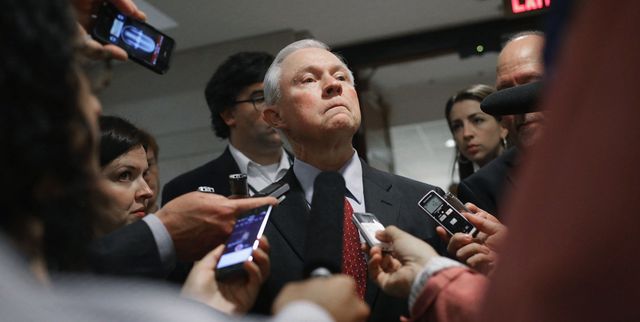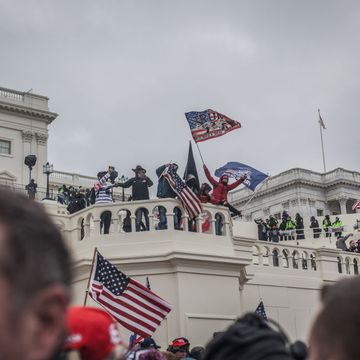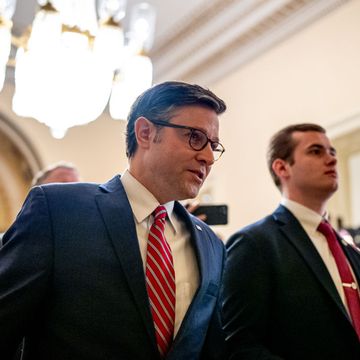Barring a revolt in the Senate or the sweet relief of an earthbound meteor, Jefferson Beauregard Sessions III will soon be Attorney General of the United States. Sessions, an Alabama senator who despite his name is not the last living Civil War general, has garnered widespread criticism because of his record on race. In 1986, Republicans on a Senate committee blocked his nomination for a federal judgeship after former colleagues testified he had used the n-word, agreed with someone who said a white lawyer representing black defendants was a "race traitor," and addressed African-American lawyers as "boy." He also said he considers the Voting Rights Act "an intrusive piece of legislation."
But perhaps his most stunning trick was a "joke" about how he thought the Ku Klux Klan was "okay, until he learned that they smoked marijuana." In fact, Sessions is particularly enthusiastic about weed—but not in a fun way. Most recently, he said at a Senate hearing this year that "good people don't smoke marijuana," adding:
"We need grown-ups in charge in Washington saying marijuana is not the kind of thing that ought to be legalized, it ought to be minimized, that it is in fact a very real danger. You can see the accidents, traffic deaths related to marijuana. And you'll see cocaine and heroin increase more than it would have, I think."
In reality, the claim that marijuana is a "gateway drug" has been debunked, and research has cast doubt on the traffic death claim. (Once "age and alcohol are factored in," The Washington Post reports, "THC didn't appear to play huge role in deadly car accidents.") But Sessions' beef goes farther back—and farther out there—than that. "I think one of [Obama's] great failures, it's obvious to me, is his lax treatment in comments on marijuana. It reverses 20 years almost of hostility to drugs that began really when Nancy Reagan started 'Just Say No.'"
Really? This is where we're headed on drug policy—back to fantasies about "just saying no" and zero tolerance? Like the renewed push to slam the door shut on Cuba, this is a Republican insistence—in conflict with scientific evidence and public opinion—to rehash policy that didn't work for decades on end. Not to mention that, if Sessions did choose to instruct the federal government to crack down on users and dispensaries in legal-weed states, it would be in direct conflict with the "states' rights" philosophy that supposedly governs modern conservatism. After all, that's what led him to call a federal law that defended the voting rights of African-American citizens in his state "intrusive."
Of course, the Drug War and race are inextricably linked. African-American defendants receive sentences 20 percent longer than their white counterparts, and according to the ACLU are far more likely to be subjected to two- and three-strike laws. This has a particularly disproportionate effect for nonviolent drug offenses: A 2013 study found more than 3,000 people are currently serving life sentences for nonviolent drug crimes. Sixty-five percent are black. In Louisiana, neighbor to Sessions' Alabama, 91 percent of the 429 prisoners serving life for nonviolent offenses were black.
It's hardly a surprise Sessions takes a hard line on the drug crusade. The question is whether Trump will give him a long enough leash to really do some damage. Trump said during the campaign that marijuana policy was best left to the states. We'll see if his administration is small-government conservative on paper or in practice.
Jack Holmes is a senior staff writer at Esquire, where he covers politics and sports. He also hosts Unapocalypse, a show about solutions to the climate crisis.













